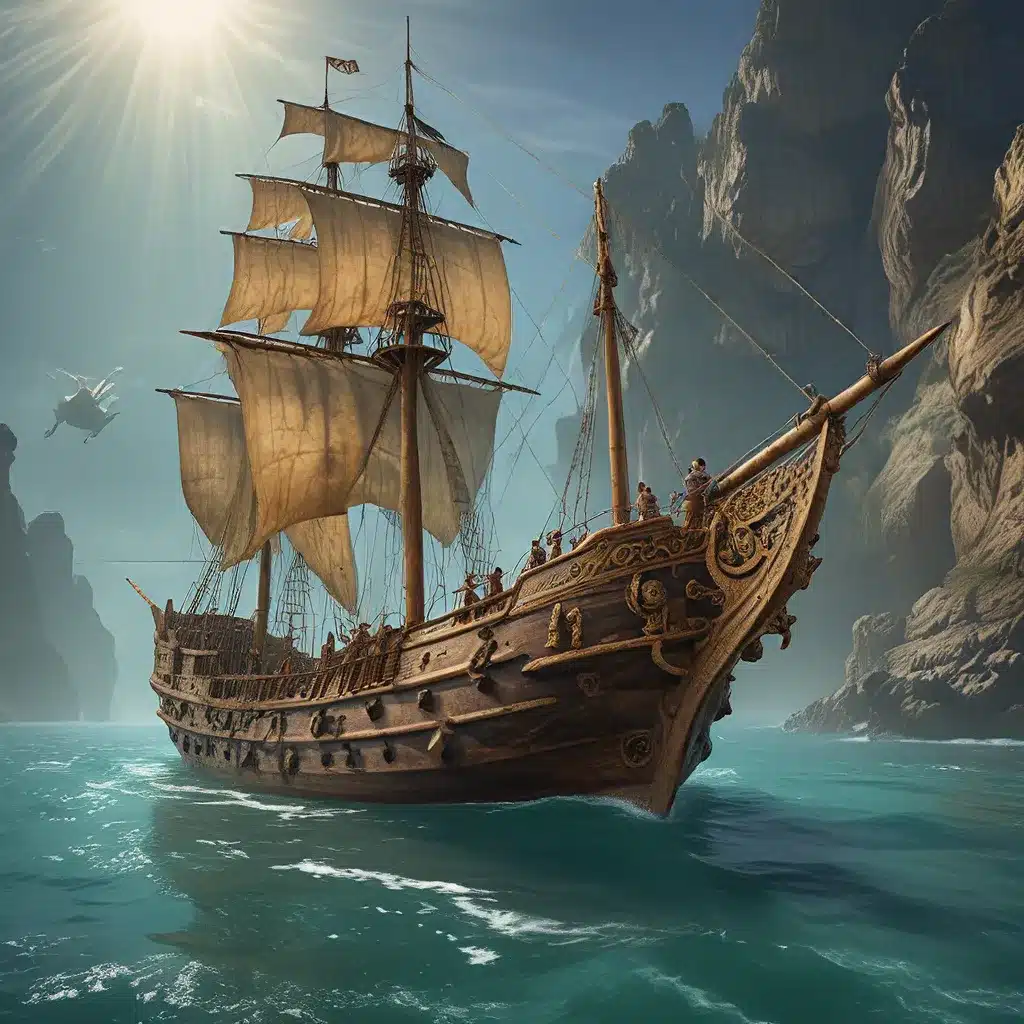
The oceans have captivated the human imagination for millennia, serving as both a source of wonder and a relentless challenge. From the ancient Egyptians to the modern era, explorers have ventured forth, driven by a thirst for knowledge, the pursuit of riches, and the lure of undiscovered lands. This article delves into the captivating history of maritime explorations, showcasing the remarkable achievements, technological advancements, and the ongoing quest to unravel the secrets of the vast and enigmatic oceans.
The Allure of the High Seas
The ocean has long been a canvas upon which humanity has painted its ambitions and dreams. Even in the earliest recorded history, seafaring cultures such as the Phoenicians, Greeks, and Vikings demonstrated a remarkable mastery of the seas, establishing trade routes, colonizing distant lands, and pushing the boundaries of their known world. The Chinese also made significant contributions to maritime exploration, with the legendary voyages of Admiral Zheng He in the 15th century, showcasing their technological prowess and geopolitical ambitions.
The arrival of the Age of Exploration in the 15th and 16th centuries marked a transformative period in human history. Explorers like Christopher Columbus, Ferdinand Magellan, and Jacques Cartier embarked on daring voyages, driven by the desire to find new trade routes, uncover wealth, and expand the boundaries of human knowledge. These expeditions not only led to the discovery of the Americas and the subsequent colonization of the New World but also sparked a new era of global interconnectedness, cultural exchange, and scientific inquiry.
Technological Advancements and the Exploration of the Depths
As the centuries progressed, the tools and technologies available to maritime explorers underwent a remarkable transformation. The development of improved navigational instruments, such as the sextant and the compass, allowed for more accurate charting of the seas and the ability to determine one’s position with greater precision. The invention of the submarine in the 17th century, pioneered by figures like Cornelis Drebbel and William Bourne, opened up new realms of underwater exploration, paving the way for future advancements.
The 19th and 20th centuries witnessed a surge in the development of oceanographic research vessels and specialized diving equipment, enabling explorers to venture deeper into the ocean’s depths. Landmark expeditions, such as the Challenger Expedition in the 1870s and the Trieste dive to the Challenger Deep in the Mariana Trench in 1960, provided invaluable insights into the geological and biological composition of the seafloor, transforming our understanding of the ocean’s ecosystems.
The Modern Era of Ocean Exploration
The advent of the 21st century has ushered in a new era of ocean exploration, characterized by a convergence of cutting-edge technologies and a renewed emphasis on understanding the ocean’s vital role in the overall health of the planet. The development of remotely operated vehicles (ROVs) and autonomous underwater vehicles (AUVs) has enabled scientists to venture into previously inaccessible regions, gathering data, collecting samples, and mapping the seafloor with unprecedented accuracy.
Organizations like the National Oceanic and Atmospheric Administration (NOAA) and the Schmidt Ocean Institute have been at the forefront of modern ocean exploration, leveraging advanced technology and fostering international collaboration to unlock the mysteries of the deep. Initiatives such as the Seabed 2030 project, which aims to map the entire ocean floor by the year 2030, demonstrate the global commitment to expanding our understanding of the marine environment.
The Significance of Maritime Explorations
The exploration of the oceans has had far-reaching implications, not only for our scientific understanding but also for our economic, cultural, and environmental well-being. Archaeological discoveries of ancient shipwrecks, submerged cities, and other underwater cultural heritage have shed light on the rich histories of maritime civilizations, revealing insights into their trading networks, technological advancements, and societal structures.
Moreover, the data and samples collected during ocean expeditions have provided invaluable information about climate change, ocean currents, and the biodiversity of marine ecosystems. This knowledge has informed policymaking, resource management, and the development of sustainable practices to protect the oceans for future generations.
Beyond the practical applications, the sense of adventure and the pursuit of the unknown have always been at the heart of maritime explorations. The thrill of discovery, the awe-inspiring vastness of the oceans, and the resilience of the human spirit have inspired generations of explorers, scientists, and adventurers alike. The ongoing quest to uncover the secrets of the deep continues to captivate our collective imagination, fueling our curiosity and drive to push the boundaries of human understanding.
Conclusion
The history of maritime explorations is a testament to the enduring human spirit, our insatiable curiosity, and our relentless drive to unlock the mysteries of the natural world. From the ancient seafarers to the modern-day pioneers, the story of ocean exploration is one of perseverance, technological innovation, and a deep appreciation for the vast, untamed realms that cover our planet.
As we continue to delve into the depths of the oceans, the potential for new discoveries, scientific breakthroughs, and a deeper understanding of our own place within the global ecosystem remains ever-present. The remarkable achievements and ongoing efforts of maritime explorers serve as a testament to the power of human ingenuity, collaboration, and the unwavering pursuit of knowledge – a legacy that will undoubtedly continue to inspire and captivate generations to come.


